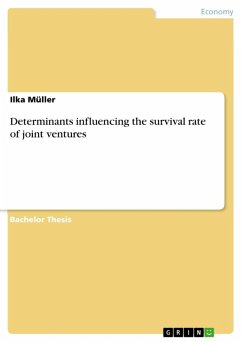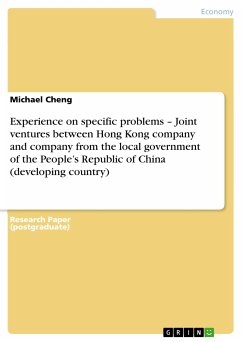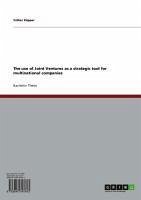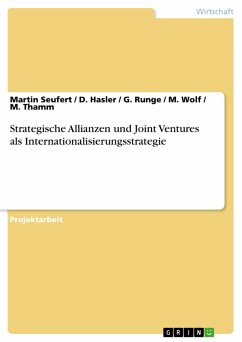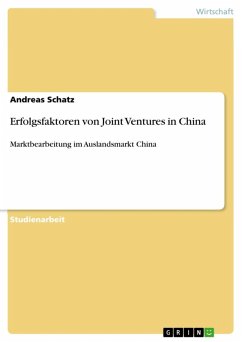Bachelor Thesis from the year 2007 in the subject Business economics - Company formation, Business Plans, grade: 1,3, University of Paderborn, language: English, abstract: Nowadays the world seems to be moving closer together and markets are becoming increasingly global. Firms take part in this globalization process and become international. A joint venture, particularly a cross-border joint venture, presents companies a promising oppor-tunity to expand into new markets. Joint ventures can help firms to broaden their geographical market participation, to acquire new knowledge, to create economies of scale and scope and, most importantly, reduce risks. The number of newly formed joint ventures is growing worldwide at an increasing pace. Yan (1998) discovered that the rate of alliance formation in the U.S. has been growing at an annual rate of more than 25 percent since 1985. A lot of the joint ventures endure for a long time but many do not. Kogut (1989) discovered a termination rate of international joint ventures of about 70%. There must be several reasons why they are vulnerable to instability and why so many fail. The aim of this thesis is to discuss which determinants have an impact on the survival of joint ventures. Guidelines are presented regarding aspects that need to be considered if a company wants to form strategic alliances with other firms. There are internal and external factors that influence the survival of joint ventures. Experts believe that some factors are con-troversial as they can influence the stability in a positive as well as in a negative way. No clear consensus is found yet. Therefore I describe their positive as well as their negative im-pacts on the longevity of a jointly owned entity.
Dieser Download kann aus rechtlichen Gründen nur mit Rechnungsadresse in A, B, BG, CY, CZ, D, DK, EW, E, FIN, F, GR, HR, H, IRL, I, LT, L, LR, M, NL, PL, P, R, S, SLO, SK ausgeliefert werden.

